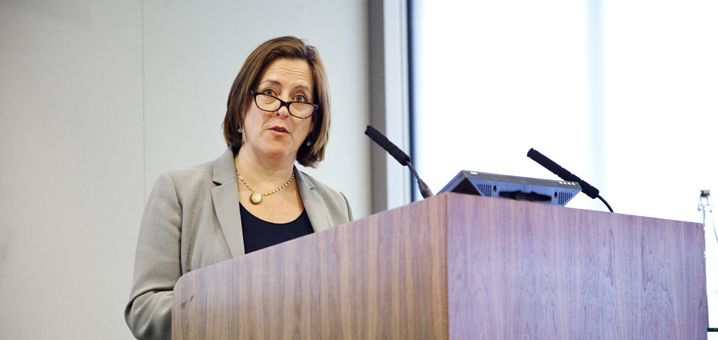Council finances are not in an unsustainable position, Melanie Dawes, permanent secretary at the communities department, reassured MPs this week.
Dawes appeared before the Public Accounts Committee to discuss the state of council finances in the wake of a recent report from the National Audit Office, which showed a worsening in local government’s financial health.
Dawes said the NAO’s finding that 66.2% of single-tier and county councils drew on their reserves to the tune of £858m in 2016-17 did not indicate long-term unsustainability in the sector.
She said: “Two thirds of social care authorities did reduce their reserves in 2016-17 but in the previous year it was 50-50, and in previous years more were increasing their reserves than were drawing them down.”
Dawes admitted that times are tough for councils but the government had responded to pressures and put extra money into the system to fund social care.
The permanent secretary said that if councils continued to draw on reserves “and if were we to build the next spending review settlement on an assumption of reducing reserves in order to balance the books, then I don’t think that would be sustainable.
“But we are not in that situation right now, and certainly our view is that for this spending review period we are not in an unsustainable position.”
Dawes said that in the run up to next year’s spending review the department will carry out a “very thorough quantitative assessment” of the costs and pressures that local authorities face and the resources they have at their disposal.
In a sometimes terse session, Dawes came under pressure from committee members to explain the methodology used by her department to conclude that local authority finances are sustainable.
She said: “We map distributions on a number of different criteria, and we will look at those authorities that are outliers on more than one criterion and that will generate a group of authorities, sometimes in similar circumstances, such as social care authorities.”
Information was reviewed on a quarterly basis, she said, and further investigations are made of outlying authorities.
“It is often the case that when you place that financial data against what we know of service outcomes, and what we know from Local Government Association work on individual authorities and what they [local authorities] tell us themselves, that a risk that looked like it was there is no longer as apparent. But we keep that very actively under review.”
MPs on the committee voiced frustration that Dawes was unable to give more information about the advice civil servants give to ministers on the sustainability of local government finances.
Dawes admitted: “I think it is a fair comment that there is not very much transparent analysis of this type in the public domain. The NAO report comments on that.”
She said she would like to see bodies such as the Institute for Fiscal Studies and the Office for Budget Responsibility involved in some of these questions.
“Our own advice to ministers is a confidential matter but I am in favour of more transparency and openness in these matters,” said Dawes.
“Typically in government, a good way is to get others to do that [analysis] and challenge government on its estimates. That happens in a number of different fields of public policy making.”
During the questioning, Dawes said that a number of councils were on her department’s risk register, but would not confirm how many.
However, she said: “What I can say is that there is no council we believe that is in the same situation as Northamptonshire.”













